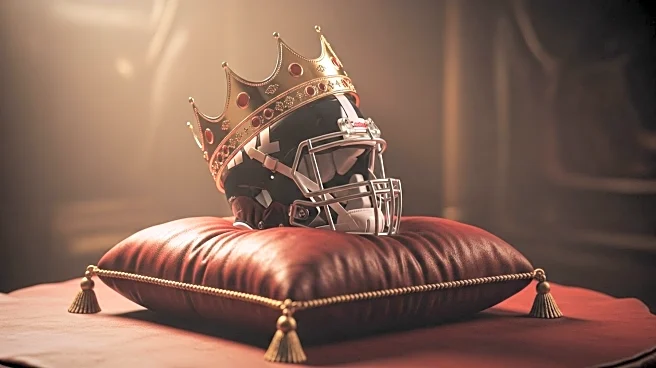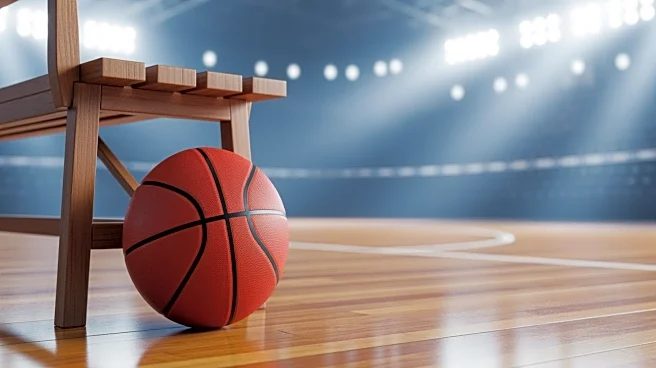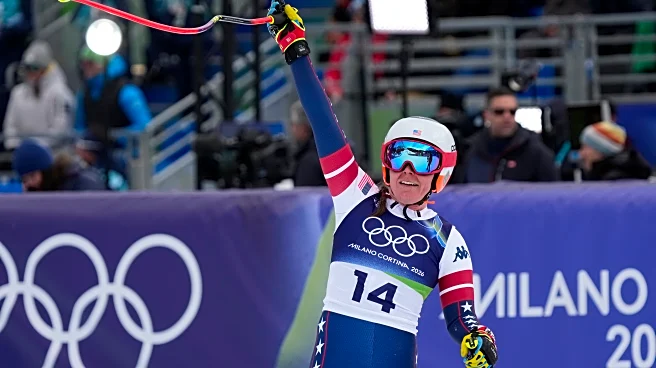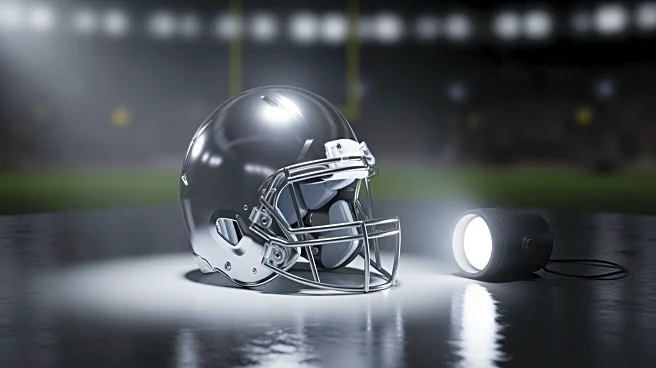What's Happening?
Darian Mensah, a prominent quarterback, has transferred from Tulane to Duke, marking a significant move in college football. The transfer reportedly involves a substantial financial arrangement, with figures suggesting up to $8 million over two years in Name-Image-Likeness (NIL) money. However, the exact amount remains unclear, as sources involved in the negotiations have provided conflicting information. Despite the uncertainty, Mensah has already benefited from the deal, acquiring a house, a Mercedes, and a Dodge Charger for his mother. He has also started a foundation for young athletes in his hometown. This transfer underscores the evolving landscape of college sports, where NIL opportunities are increasingly influencing player decisions.
Why It's Important?
The transfer of Darian Mensah to Duke is a testament to the growing influence of NIL deals in college sports. These financial opportunities are reshaping the dynamics of college football, allowing athletes to make decisions based on potential earnings rather than traditional factors like team prestige or athletic program strength. This shift could lead to more players choosing schools that offer lucrative NIL deals, potentially altering the competitive balance in college sports. For universities, this means adapting to a new era where financial incentives play a crucial role in recruiting top talent. Stakeholders in college athletics, including coaches, administrators, and sponsors, must navigate this changing landscape to remain competitive.
What's Next?
As NIL deals continue to impact college sports, universities may need to develop strategies to attract and retain top athletes. This could involve enhancing their NIL programs or forming partnerships with brands to offer competitive deals. Additionally, the NCAA and other governing bodies might consider revising regulations to ensure fair play and prevent potential abuses of NIL opportunities. For athletes like Mensah, the focus will likely be on maximizing their earning potential while balancing academic and athletic commitments. The broader implications for college sports could include shifts in team dynamics, recruitment strategies, and the overall structure of athletic programs.
Beyond the Headlines
The rise of NIL deals in college sports raises ethical and cultural questions about the commercialization of amateur athletics. While these opportunities provide financial benefits to athletes, they also challenge the traditional notion of college sports as a purely educational and developmental experience. There is a risk that the focus on financial gain could overshadow the importance of academic achievement and personal growth. Additionally, disparities in NIL opportunities could exacerbate inequalities among athletes, with those in high-profile sports or programs receiving more lucrative deals than their peers. These developments may prompt discussions about the future of college sports and the role of money in shaping athletic careers.










